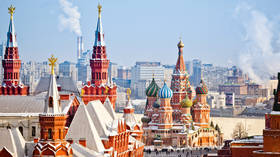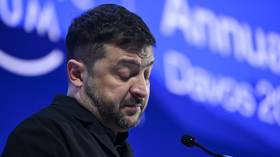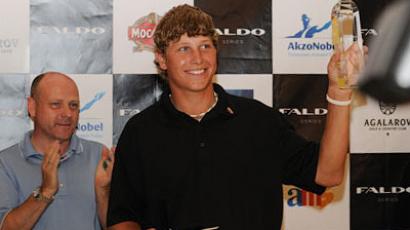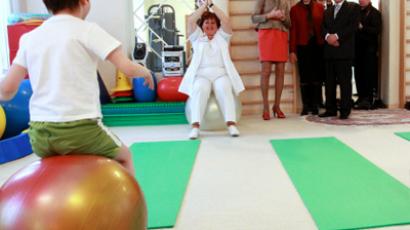A home from home: Adoption standoff between Russia and US over
An impasse over the controversial issue of the adoption of Russian children by foreign parents appears to be over after the Duma ratified new agreements with the US and France. The new rules are clearer, but place strict demands on foster parents.
Parliament voted for the legislation with 244 votes against 96, with two abstentions.Officials say that at least 47,000 Russian children have been adopted by American foster parents, but the real figure is estimated at nearer 100,000 due to incomplete records. Although most of these have proceeded without a hitch, several high-profile cases of abuse have sparked anti-American rhetoric.As recently as May a Wisconsin couple, the O’Briens, were accused of 10 counts of child abuse towards their six adopted Russian children. They allegedly sprayed them with pepper spray, would lock them in their bedroom, and make them stand naked and watch the O’Briens and their biological children eat dinner. The trial has not yet concluded.A political outcry over Artyom Savelyev, a Russian child with “behavioral problems” sent to his homeland with a one-way ticket in 2010 resulted in a temporary freeze of adoption applications. The two countries have worked to overcome the problem that has left thousands of children and potential parents in the lurch.Russia has long been demanding information from US authorities on the fate of children after they’ve been taken in by adoptive or foster families.But according to the US law, once a child is legally adopted, the state has no specific responsibility to monitor or oversee how they are doing with their new families.“Once an adoption is finalized in any state in the US, that child is considered as if born to those legal adopted parents. There is no more intervention at all on part of the adoption agency,” revealed Mirah Riben, author of The Stork Market.
New rules
The legislation agreed between Russia and the US last year should formalize adoptions, which previously often happened haphazardly without a set procedure.The pact imposes stricter criteria on foster parents, such as psychological and suitability tests similar to those used for domestic adoptions, and outlines the rights of adopted children. A special centralized commission will be in charge of the adoptions, which will have the power to interview parents on US territory. Meanwhile, the adopted children will be entitled to Russian citizenship.Russian authorities also hope the pact will quell concerns about unscrupulous middlemen who charge a “finder’s fee” for quickly setting up foreign adoptions, in a practice that effectively amounts to child trade.While many Russians say they resent children leaving the country in their thousands at a time when Russia’s population continues to decline, foreign adoptions remain a necessity.Russian officials say that 125,000 children are awaiting adoption, but UNICEF estimates that there are actually 740,000 children without parental custody in the country.Adoption is traditionally unpopular in Russia, and the opaque state-run orphanage system is frequently rocked by abuse and corruption scandals.Although adoption by French parents is less politically charged, almost 25,000 children have been adopted by French parents, at least officially. The agreement with that country is also similar, incorporating childcare laws from both countries.“Often we have known nothing about the children who left Russia, and only heard about them when they made the news. This agreement is not perfect, but it allows us something to work with,” said Olga Batalina, who heads the Duma committee on children.














